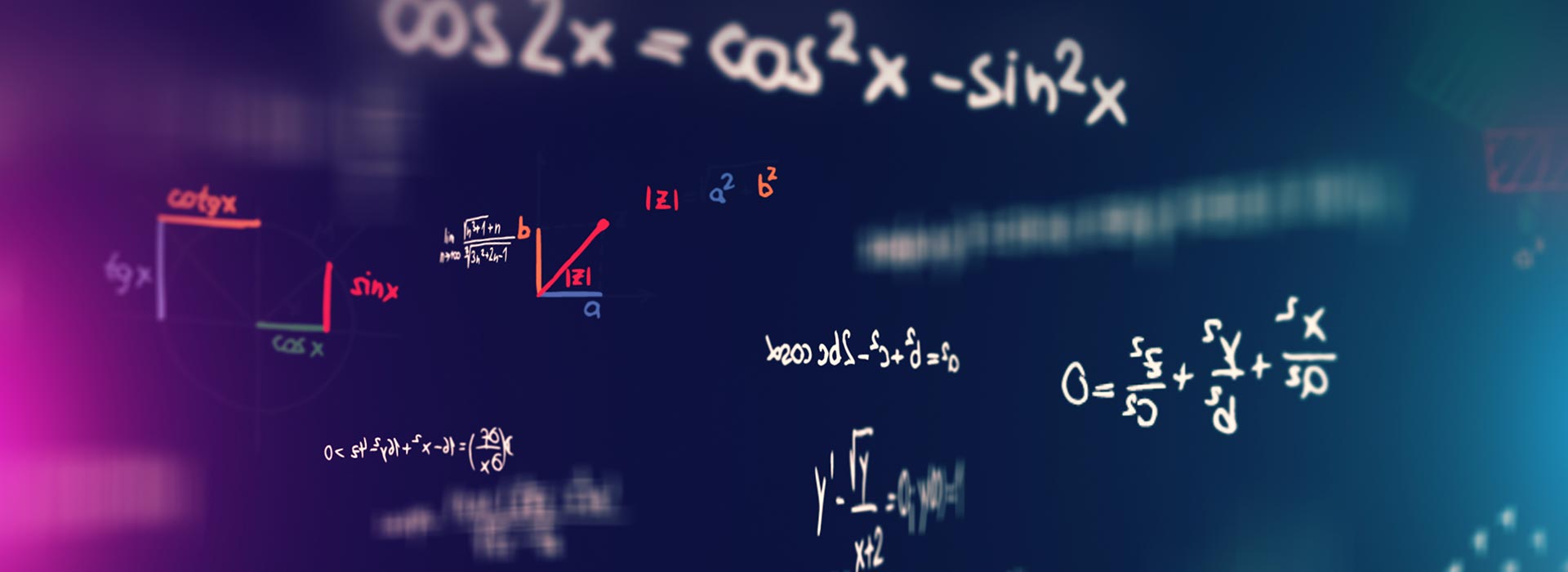Postgraduate Programme in Mathematics Education

Back to Mathematics Education - Portuguese Home
History
The Postgraduate Studies Programme in Mathematics Education has its origin as a Postgraduate Studies Programme in Mathematics and began its activities in 1975, with the following areas of concentration: Number Theory, Algebra and Analysis, under the coordination of the eminent Professor Doctor Fernando Furquim de Almeida. By 1990, more than a hundred masters’ theses in mathematics were completed.
The difficulties related to the mathematics teaching/learning process, aggravated by the modern mathematics movement, prompted increasing involvement of scholars from different areas of knowledge with this problem worldwide.
In Brazil, groups of mathematics teachers have developed studies focusing on teaching since the 1970s outside an area of knowledge that could encompass them. The Postgraduate Programme in Mathematics Education of UNESP/Rio Claro, created in the 1980s, filled this gap.
PUC/SP, which has always hold vanguard positions historically, founded on developing quality teaching not dissociate from research activities, became involved in the Brazilian organisation in mathematical education. For this purpose, the university took some actions:
- Organise and host the 1st ENEM (National Meeting of Mathematical Education) in 1986;
- Create in 1990 the area of concentration Didactics of Mathematics within the existing Master’s Programme in Mathematics;
- Transform the Master’s Programme in Mathematics into a Master’s Programme in Mathematics Education from 1994 onwards;
The change in the area of concentration took place in an environment of many faculty’s discussions about the curricular structure of the course, counting on the collaboration of specialists from Brazil and abroad, especially from France. In 1997, the Postgraduate Programme in Mathematics Education, with the Academic Master’s Degree in Mathematics Education, was accredited by CAPES.
Also, in September 1997, at the initiative of the Postgraduate Studies Programme in Mathematics Education of PUC-SP, the Working Group on Mathematics Education was proposed and created at ANPEd - National Association of Postgraduate Studies and Research in Education.
These advances opposed to the fact that at the national level, until 2001, there was only one doctoral course in mathematics education, at UNESP-Rio Claro, and a few others within postgraduate education programmes, which revealed a mismatch between this growth and all the demand for more vigorous investigations that could be being carried out by an already qualified body of researchers. This hiatus was the subject of discussion at the WG of Mathematics Education, at the ANPEd 2000 Annual Meeting.
In this context, PUC-SP proposed two new courses to CAPES: a professional master’s degree in mathematics teaching and a doctorate in mathematics education.
The creation of a doctoral course in the Postgraduate Programme in Mathematics Education at PUC-SP in 2002 was part of this more general framework of research in mathematics education, besides representing a natural consequence of the accumulated research experience in the area.
Moreover, the deepening of research in mathematics education at the international level, with the participation of the Programme in the CAPES/COFECUB agreements and the British Council, qualified the Postgraduate Programme in Mathematics Education at PUC-SP to carry out other exchanges and projects with greater scope and depth, through relative autonomy, with the characteristic of doctoral studies.
Area of Concentration:
Mathematics Education
Research lines:
-
Mathematics in the curricular structure and teacher training
Study of the role that mathematics plays in the curricular structure of elementary and high school education, and reflection on the reorientation of mathematics teacher training, emphasising research on teachers’ representations of their practice and teacher-student-mathematical knowledge relationships.
-
History, epistemology and didactics of mathematics
Analysis of the interrelation between the epistemology, history, and didactics of mathematics to better understand the phenomena related to mathematics teaching and learning, the relations between scientific and school knowledge, and the historical-cultural constitution of mathematics.
-
Information technologies and mathematics education
Study the role of incorporating new techniques, particularly information technologies, and computer use for mathematics teaching and learning process.
ABOUT THE PROGRAMME
- Capes Evaluation: Quadrennium 2013/2016
Master - Concept 5
Doctorate - Concept 5
- Duration:
Master’s degree: 1 and a half years (min.) / 2 and a half years (max.)
Doctorate: 2 and a half years (min.) / 4 years (max.)
Master’s Degree
The Academic Master’s in Mathematics Education comprises the following activities: five compulsory subjects, one elective subject, two programmed activities and the preparation of a thesis.
| Credits | Hours activities | |
| Subjects | 18 | 1,530 h/a |
| Scheduled Activities | 06 | 510 h/a |
| Preparation and defence of the thesis | 03 | 255 h/a |
| Total | 27 | 2,295 h/a |
The subjects are: Fundamentals of Didactics of Mathematics; Learning Theories; Research methodology; Didactics of Mathematics I; Didactics of Mathematics II; Complementary Studies (elective)
Doctorate
The PhD in Mathematics Education comprises the activities (in a total of 27 credits) distributed as indicated in the table below:
| Credits | Hours activities | |
| Subjects | 06 | 510 h/a |
| Advanced Seminars | 06 | 510 h/a |
| Scheduled Activities | 06 | 510 h/a |
| Dissertation writing | 09 | 765 h/a |
| Total | 27 | 2,295 h/a |
The subjects are: Topics of History and Philosophy of Mathematics and Theories of Mathematics Education.
Coordinator:
Prof. Dr. Ana Lúcia Manrique
manrique@pucsp.br
Vice-coordinator:
Prof. Dr. Celso Ribeiro Campos
crcampos@pucsp.br